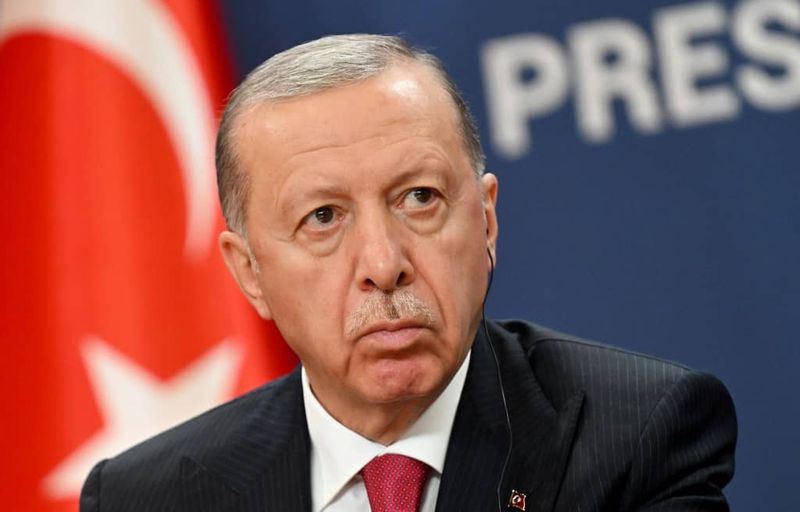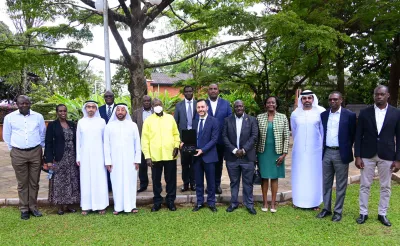
I was privileged to get invited to Turkey to be part of the 16th July attempted coup anniversary in 2018, and have been in touch with the events in Turkey. This is a day, according to President Recep Tayyip Erdoğan, that was or has been set aside to remember the triumph of democracy over dark forces that tried to reverse the democratic and development gains of the country.
It is a day when those who lost their lives defending democracy and a legitimate government are recognised. Still, the day is used to pray for peace and the political martyrs of Turkey. The coup could not succeed due to several reasons, however, the following deserve mention as to why the coup failed.
Development of Turkey
According to Mr Kizito Edmond, a renowned veteran journalist from Uganda, coups succeed in less developed countries. With such a development record in Turkey, where Istanbul is among the top five visited cities of the world, the last thing any Turks would wish is a coup. A coup, be it bloodless or bloody, certainly will in one way or the other have some things affected. This is why the people of Turkey joined forces to avert the coup. Indeed, eight years down the road, that short-term coup has seen the number of tourists fall from 40 million tourists per year to about 30 – 35 million people. Turkey is no longer the sick man of Europe, as we were made to study in European history. It is one of the major players in the world and gives aid to some African countries.
Lack of clear leadership
Whereas the Turkish government strongly linked the coup plotters to followers of the Late Fettullah Gulen, the Gulenists vehemently denied any links with the coup. Even late Gulen, while living in exile in the US, where he died in 2024, issued statements distancing himself from the coup. In Uganda, we have had two successful coups in 1971 and in 1985 when army commanders General Idd Amin and General Tito Okello Lutwa, respectively over overthrew their boss, Dr Apollo Milton Obote. The fact that the top leadership of the army in Turkey was not fully behind the coup, there is no way the coup could have succeeded. In May 2015, in Burundi, the coup failed just because Maj-Gen Godefroid Niyombare, the coup leader, was not in touch with other political players in the country, and other players in the Burundian army observed Prof. Pacifique Malonga of Rwanda.
Transition to the presidential system
Turkey, since 2015, has been in a transition from the parliamentary system (executive Prime Minister) to a presidential system. This transition has been or is being realised under President Recep Tayyip Erdogan. World over, when strong leaders of their time and community are undertaking radical changes, the wananchi are always keen to give them a chance to see how far the changes can translate into better governance and economic prosperity. The Turks still need to see how the presidential system will secure Turkey a place in the world’s most powerful nations economically and maybe politically.
Lack of internal support
The coup in Zimbabwe on 14th November 2017 was successfully executed by the top brass of the Zimbabwe Defence Forces and the leadership of the ruling ZANUPF. This saw the end of old man Robert Mugabe’s rule of Zimbabwe for over three decades. However, what made the coup succeed faster than it should was that it had the support of many of the people of Zimbabwe. The people of Zimbabwe, upon confirming that strongman Uncle Bob had been put under house arrest by the very army that had made him cling on to power,r rushed to the streets and started jubilating. Even the Zimbabweans in the diaspora could not hide their excitement over the news. In November 2017, Zimbabwe experienced a military-led coup that resulted in the removal of long-time president Robert Mugabe. Elements of the Zimbabwe Defence Forces seized control of key areas in Harare and replaced Mugabe with Emmerson Mnangagwa. While the military stated it wasn’t a coup, the event was widely recognised as one, marking a significant shift in Zimbabwean politics.
Little external support
In the sixties in Africa, most governments of leaders who were strong Pan African leaders were overthrown through bloody coups. This was mainly because the Americans and other capitalists had a hand in such coups. This was the case in DR Congo when Patrice Lumumba was assassinated in 1961. It was a similar case when Dr. Nkwame Nkrumah was overthrown in Ghana in 1966. This was not the case in Turkey. There were no such strong foreign powers behind the 16th July 2016 coup in Turkey, observes Ebrima Baldeh, a journalist from Gambia.
In a nutshell, though some circles in the world have tried to doubt that there was such a coup in Turkey, with others branding it stage-managed, the truth of the matter is that it’s difficult given the above circumstances,s for a coup to have been successful in Turkey. With the politics surrounding the coup notwithstanding, in the world of today it’s extremely hard for a coup to get acceptability unless the leadership is extremely unpopular, as was the case with Robert Mugabe of Zimbabwe. President Erdogan still enjoys the support of his people and from the ruling party.
The author is a teacher, journalist and Pan African and can be reached at mwalimakol@gmail.com














Guest Writer
Leave a Comment
Your email address will not be published.